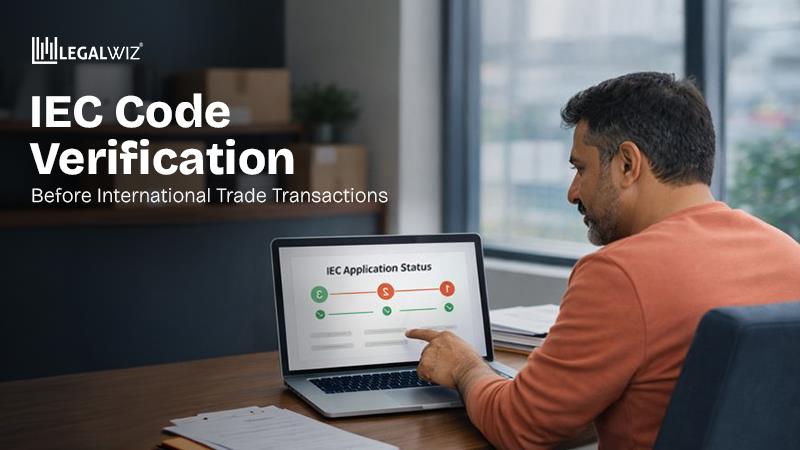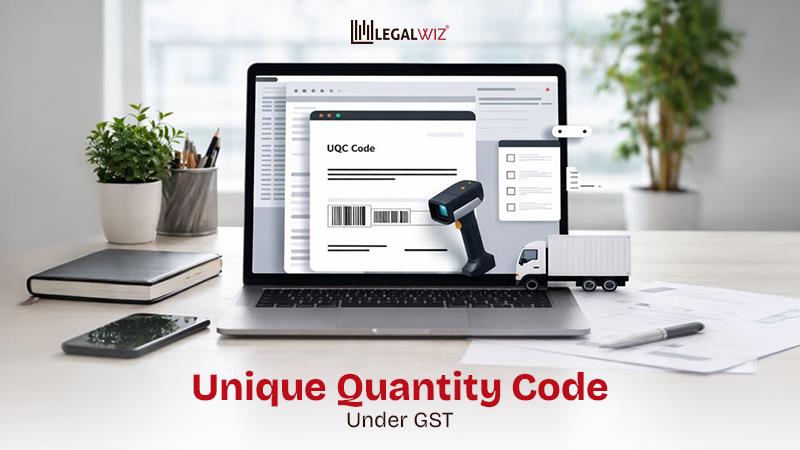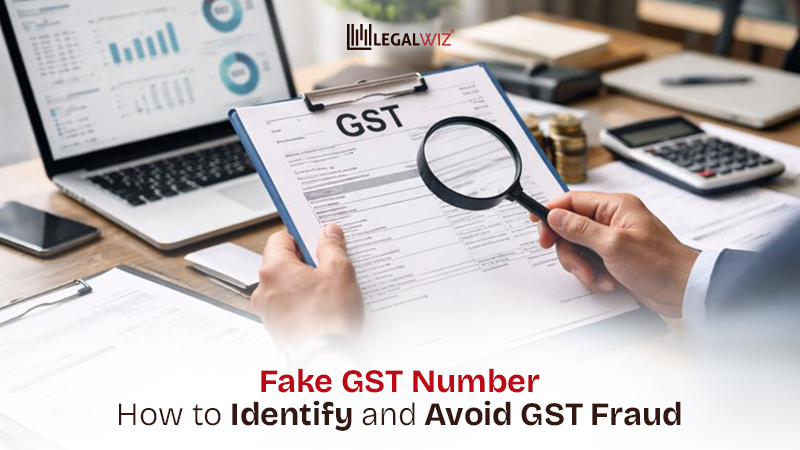Is a DIN Required for a Private Limited Company in India?
A DIN is the unique identification number allotted by the MCA to every company director in India. It helps maintain a verified and permanent record of their directorships across companies.
- Required for all directors: Anyone who wants to be a director of an Indian firm must first have a DIN.
- MCA issued: The DIN helps keep company governance transparent and ensures that everything can be tracked.
- Works for all entities: Getting a DIN is one of the first things you need to do to comply with the law before you Register a Private Limited Company or NGO.
This article talks about what a Director Identification Number is, why they are important, whether directors of private limited businesses need them, how to get one, what papers you need, and how to verify or alter it online.
What Is a Director Identification Number (DIN)?
A Director Identification Number (DIN) is a unique eight-digit number issued by the MCA. Anyone who wishes to be a director in a registered corporation may get it. The number is a permanent ID for all company-related operations and filings.
| If you’re planning to become a company director, it’s essential to know about the Director Identification Number (DIN), read our full guide on what DIN is and how to apply for it. |
- Legal basis: DIN is defined under Sections 153 to 159 of the Companies Act, 2013, and the Companies (Appointment and Qualification of Directors) Rules, 2014.
- Purpose: It helps the MCA maintain a record of all directors in India. This promotes transparency and prevents duplication or misuse of directorship.
- Need for DIN: Every director must have a DIN before being appointed. It is used for all official filings and communication with the Registrar of Companies (ROC).
- DIN vs DPIN: A DIN is for directors in companies, while a Designated Partner Identification Number (DPIN) is for partners in LLPs. However, since MCA merged them, both numbers serve the same purpose.
Before applying for a DPIN or registering an LLP, it helps to know the roles of partners and designated partners. explore them in our blog: LLP FAQs: Partners, Designated Roles & Registration.
Note: A DIN can be used for multiple directorships, although Section 155 of the Companies Act, 2013 prohibits holding more than one DIN.
Is DIN Mandatory for Directors in India?
Yes. Every director of a company that is registered under the Companies Act, 2013, requires a DIN. No one may be a director or do any of the related tasks without an official DIN from the Ministry of Corporate Affairs.
A DIN must be obtained before a person is appointed as a director. For new companies, proposed directors can apply for a DIN directly through the SPICe+ (INC-32) Form during incorporation.
Applicability of DIN for Private Limited Company
| Type of Entity | DIN Requirement | How to Apply |
| Private Limited Company | Mandatory for all directors | Through SPICe+ at incorporation or DIR-3 for new appointments |
| Public Limited Company | Mandatory for all directors | SPICe+ or DIR-3 |
| One Person Company (OPC) | Mandatory for the sole director | SPICe+ at incorporation |
| Limited Liability Partnership (LLP) | Mandatory for designated partners (DPIN) | Through FiLLiP form during registration |
A person cannot legally act, sign, or file on behalf of a company without a valid DIN or DPIN.
DIN Requirement for Private Limited Companies
The need for a Director Identification Number (DIN) in a private limited company depends on when a person becomes a director. The MCA has set clear rules for getting a DIN during company registration or when appointing a new director later.
When DIN Is Required For a Private Limited Company
| Stage | When It Applies | Form Used | Details |
| At the time of incorporation | When a new private limited company is being registered | SPICe+ (INC-32) | DINs for proposed directors can be applied for directly while filing the SPICe+ form. The MCA allows up to three proposed directors to obtain their DINs during the incorporation process |
| After incorporation (for new appointments) | When a new director is appointed after the company has been incorporated | DIR-3 | The new director must apply for a DIN separately through Form DIR-3. This form is filed online and must be digitally verified by an existing director who already holds a valid DIN |
Before you set up your company, make sure you know how the SPICe+ process works, name reservation, DIN, PAN/TAN, GST, EPFO, ESIC all bundled in one form. Head over to this blog on Everything About SPICe+ Form for Company Registration for full insight.
Number of Directors Who Must Have a DIN:
When the business is established, at least one director must have a valid DIN. This is because the SPICe+ documentation must be filled out and submitted electronically by someone with an approved DIN.
Thus, a company must get a DIN when it registers and for any further appointments that come after that, as required by the Companies Act, 2013.
How to Apply for a DIN in India
Step 1: Collect the Required Documents
Before applying, keep these documents ready:
- Identity proof: PAN card for Indian nationals or passport for foreign nationals
- Address proof: Utility bill, bank statement, or similar document
- Photograph: Recent passport-size photograph
- Digital Signature Certificate (DSC): Required to digitally sign the application
Step 2: Choose the Correct Form
- Through SPICe+ Form (for new companies): Incorporate a new business using the MCA portal’s SPICe+ form and file DIN applications for up to three directors
- Through eForm DIR-3 (for existing companies): Directors appointed by existing corporations must submit Form DIR-3 with a board resolution
Let’s understand why DIR-3 KYC is important for every company director and stay updated with the latest due date and filing requirements in our detailed blog: What is DIR-3 KYC.
Step 3: Submit the Application
- Use your DSC to access the MCA site
- Enter personal and business information carefully
- The applicant must sign all documents and have a professional (CA/CS/CMA) or director verify the application online
Step 4: Verification and Approval
- Your application is reviewed by the MCA under Sections 153 and 154, Companies Act, 2013
- Correct information authorizes the DIN. MCA may correct discrepancies within 15 days
Step 5: Receive Your DIN
- Once approved, the DIN is issued and shared via email or can be downloaded from the MCA portal
- Lifelong validity: A DIN is good for life and may be used for more than one directorship
- KYC every year: To keep your DIN active, you need to fill out Form DIR-3 KYC every year
Cost of DIN Application in India
| Mode of Application | Government Fee | Additional Costs (if applicable) |
| Through SPICe+ Form | No separate charge | Professional fees and DSC charges may apply during incorporation. |
| Through eForm DIR-3 | ₹500 per application | Professional and DSC costs vary depending on the service provider. |
Validity and Maintenance of DIN
A DIN is valid for life and may be used for all directorships. Any change in name, address, or phone number must be notified to the Ministry of Corporate Affairs on Form DIR-6.
Every director must submit Form DIR-3 KYC or DIR-3 KYC Web each financial year to maintain DIN status.
Forms Associated with DIN (Excluding SPICe+)
| Form | Purpose |
| DIR-3 | To apply for a new DIN |
| DIR-3C | For companies to inform the Registrar about directors’ DINs |
| DIR-5 | To surrender or cancel an existing DIN |
| DIR-6 | To update or correct details already submitted in Form DIR-3 |
Penalty for Non-Compliance or No DIN
According to the Companies Act of 2013, it is against the law to act as a director without a valid Director Identification Number (DIN). The results are:
- Violation of the law: Serving as a director without a valid DIN is against the law. Also, Section 155 says that you can’t have more than one DIN. Under Rule 11 of the Companies (Appointment and Qualification of Directors) Rules, 2014, the MCA may tell you to give up excess DINs.
- Penalty under Section 159: A fine ranging from ₹25,000 to ₹1,00,000 may be imposed.
- More Action by MCA: The Ministry of Corporate Affairs may start disqualification or other disciplinary actions against the person.
Conclusion: Get Your DIN and Stay Compliant
Every Private Company director in India needs a Director Identification Number (DIN). It is a unique identity that ensures that corporate governance is open and accountable. Without a valid DIN, no private limited business may hire or register a director.
To prevent fines or disqualification, it is also crucial to keep your DIN current by making sure you update it on time and do your KYC every year. LegalWiz.in gives full support to help you remain compliant with MCA standards and make the incorporation process go smoothly. They can also help you with your DIN application.
Frequently Asked Questions
Do all private business directors require a DIN?
Yes. A person must have a valid DIN before they may become a director.
Can one person have more than one DIN?
No. A person can only have one DIN, no matter how many companies they work for.
How long does it take to get a DIN?
The MCA will usually provide you with the DIN within one to two business days after you properly submit and verify it.
Do you have to pay a yearly fee to retain a DIN?
Directors don’t have to pay an annual fee, but they do have to fill out Form DIR-3 KYC every year to keep their DIN valid.

Sapna Mane
Sapna Mane is a skilled content writer at LegalWiz.in with years of cross-industry experience and a flair for turning legal, tax, and compliance chaos into clear, scroll-stopping content. She makes sense of India’s ever-changing rules—so you don’t have to Google everything twice.







